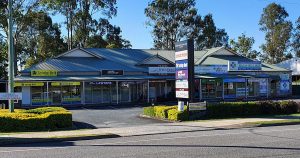
- 1300 928 000
- enquiry@zuvo.com.au
- LICENSED COMMERCIAL PROPERTY BUYERS AGENTS

During these Covid times, industrial commercial properties are in high demand from both businesses wanting to lease these type of premises to astute investors trying to buy these investments. Whilst industrial property is a less of a glamourous class of commercial asset, historically they have proven to be more a reliable performer.
But not all industrial properties are alike. Like any investment there are some great properties out there, similarly there are bad ones that you need to steer clear of as well. So how do you choose a better performing asset over a poor quality one?
Here are some indicators to point you in the right direction. When looking for an ideal industrial investment you should consider the following:
1. Location – many industrial properties require access to major arterial roads and freeways to their service region, population centres and business hubs. Access to the property for employees & suppliers should also be considered.
2. Decent access and entry for large trucks, particularly those that require semi-trailers and containers to manoeuvre. The entrance to the warehouse premises needs high clearance doors, driveways can’t have steep gradients or corners to get around.
3. The availability of an adaptable office or showroom area in the premises, either at ground level or via a mezzanine structure (approximately 10% to 30% of available floor space).
4. Generous roof heights to accommodate modern racking systems that enables the tenant to store their goods higher.
5. Adequate onsite parking for staff, visitors & customers.
6. Good staff amenities, including toilets, kitchen, air conditioning in the offices.
7. Build or construction type – tilt-up slab, block construction, steel frame etc
8. Suitability for purpose – floor load capacity (for storage capacity, heavy load forklifts etc), electrical capacity (e.g. 3-phase power), ventilation, internal cranes,
9. Suitable council zoning for the types of industry at the property (or future industries you might want to attract when looking for a tenant).
10. Are there any nearby vacant properties of similar type?
11. What is the cap rate of similar properties in the area?
12. Is there any vacant land nearby that could be developed at short notice into a similar type of asset, thus creating competition.
13. Re-Let Ability – get the above points right and you’re in good stead to have an investment that will appeal to a broad cross-section of potential tenants, when your property becomes vacant.
And this last point is VERY important!
Tenant Selection
The property itself may tick all the boxes but without a good quality tenant, it might be the difference between a good and a great investment. Some tips to find out more about the tenant can include:
1. What type of business is the tenant operating?
2. How long have they been in business?
3. Who are their competitors?
4. Who owns the business?
5. How long have they been the tenant?
6. Who owns the fit-out at the premises?
7. Does the business require any special permits, approvals or licenses to trade?
8. Are there any outstanding issues or maintenance problems that need immediate resolution?
9. What was their previous location(s)?
10. How long were they at the previous location(s)?
11. How many staff does the business have?
12. Does the business have any other branches/locations?
13. What are their trading hours?
14. What’s their relationship like with neighbouring businesses?
15. How clean is the general appearance of the property (general tidiness outside the building and disposal of waste)?
16. How long is the current lease term?
17. What does the rent ledger show, payments on time?
18. Whose guarantee is supplied for the tenancy?
19. How likely are they to exercise their option to remain at the property? Or would they be inclined to sign a longer lease if the property is sold to new buyers?
Whilst above points are some of the major things you need to find out about the tenant, there’s still a lot more to research but it will give you a good head start.
Things to note – Factory, Warehouse & Industrial rents tend to be higher if there is a decent office component than if there is just a large open warehouse. And the leases are usually for 2-3 years with similar 2-3 year options (with annual CPI adjustments). In most cases the tenant pays all outgoings like rates, insurances, property management, upkeep & maintenance and so on.
Typically, Factory, Warehouse & Industrial rents and occupancy levels experience steady increases during periods of economic expansion, with the industrial market in general being less volatile than other commercial property markets.
In summary, you can see why industrial properties can be very good investments with the right diligence done. That’s why they are a great first or additional investment in any property portfolio.
If you would like to find out more about industrial properties for an investment, get in touch with us at any time.

begin your commercial property investing journey now…
© 2022 All rights reserved | ZUVO Commercial